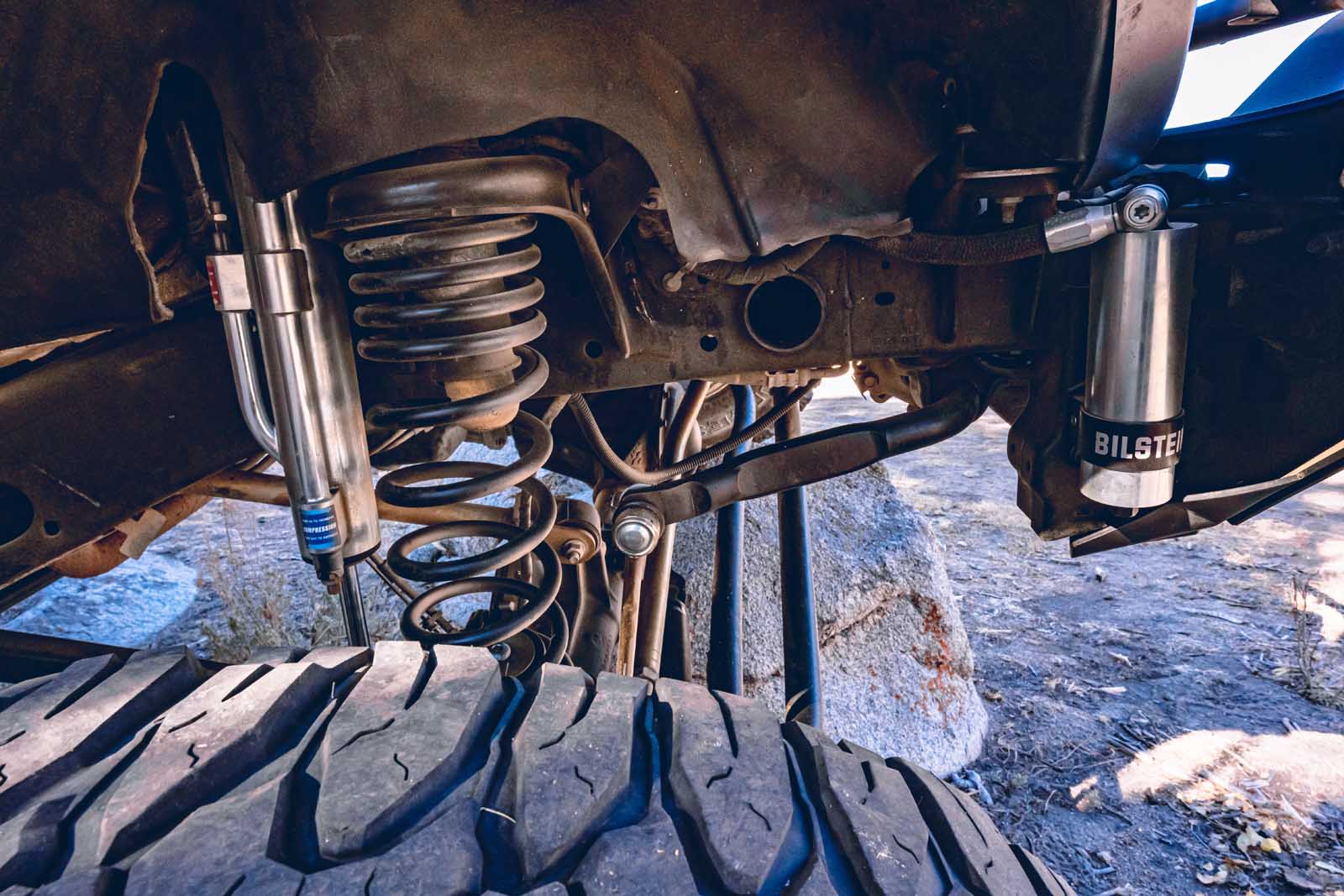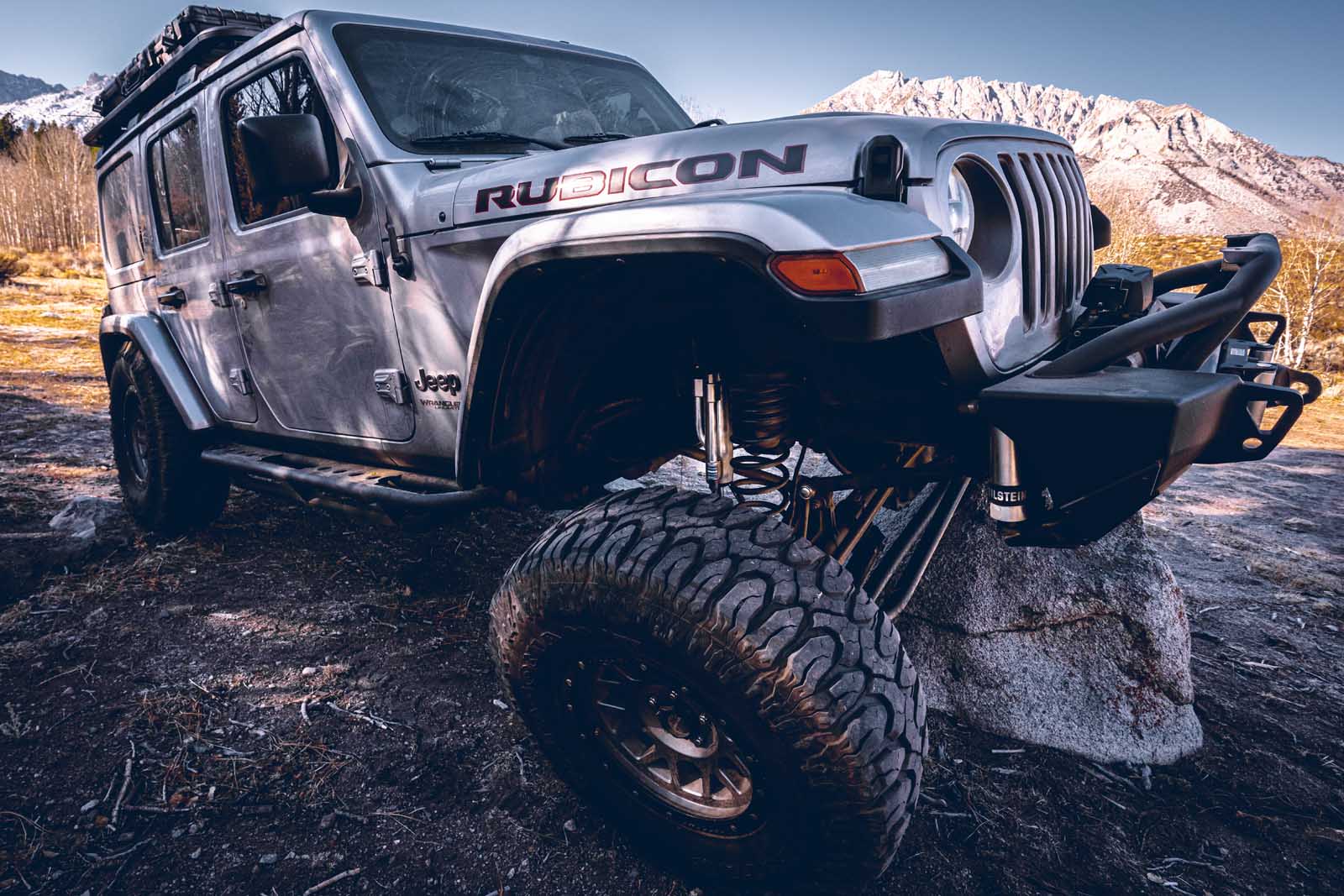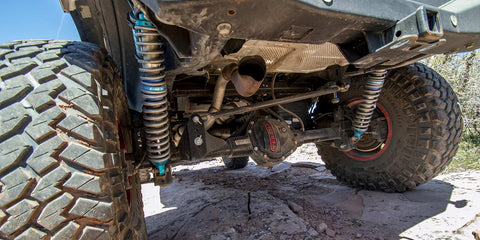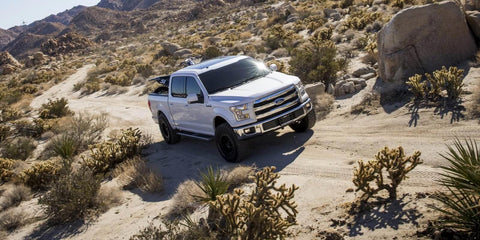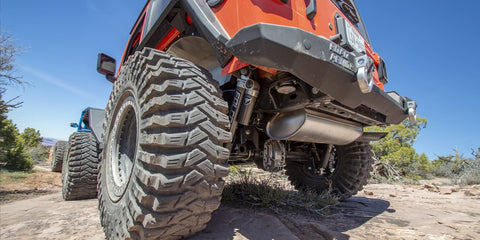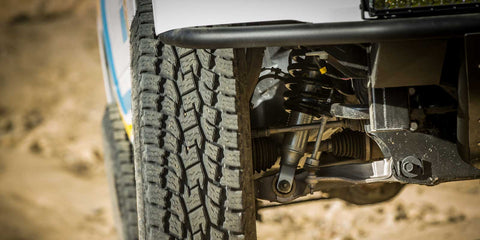Bilstein 8100 Shocks First Impressions & Review - 2019 Jeep Wrangler JLU Rubicon
Posted by Sean Reyes on
Suspension Timeline
This JLU has previously seen the stock suspension, then the Rock Sport shocks from Metal Cloak when the 3.5” lift kit was installed. After about 10k miles with the base lift kit, Fox 2.0 IFP shocks were installed, which improved off-road performance significantly in terms of taking harder hits and bottom out resistance in the faster terrain. After Fox, we had to pit the King 2.0 head to head to see what all the fuss was about - those turned out to be underwhelming and not what we expected.
See our review of the King 2.0 vs Fox 2.0 over here
External Bypass Dominance
The Bilstein 8100 has tremendous advantages over normal 2” smooth body shocks (5100, Fox 2.0, King 2.0, etc), not only in thickness and piston size, but also with easily accessible compression and rebound settings that can fine tune ride control and quality. There are a few shock options on the market with compression adjustment available on the shock reservoir, such as the Fox DSC, King Adjustables, Falcon 3.2, and Old Man Emu BP51, amongst others. Adjusting compression definitely helps with 1 part of the ride control equation, while Rebound adjustment takes it a step further.
The Bilstein 8100s are a culmination of decades of shock absorber design and precision by one of the (if not *the*) leading damper manufacturers in the world. The combination of their 60mm piston with external bypasses and precision tuning with a full 10-turn dial on both compression and rebound, gives massive adjustments to any ride control situation you’ll encounter.
We used some of the desert and mountain trails around Mammoth Lakes, CA to get a read on suspension behavior with the different settings. The entire trip, along with the first day, was using the factory out of the box settings, which was 7 full turns out from fully closed, meaning a bit on the softer side of what these shocks are capable of. These are race shocks, they’re capable of more than what most Wrangler drivers need them for, but if you like to combine high speed shenanigans with scenic cruises, and want the best, these are the JAM!
- Fully Closed Compression Dial - Most Firm (slows compression action the most)
- Fully Closed Rebound Dial - Most Rebound (droops out the quickest)
To be frank, it was quite hard to unsettle the JLU with these settings, going anywhere from 20-40mph through some of the wider open trails that featured the usual washboard, some minor whoops, and the typical trail surprises that result in g-outs or high speed hits. The biggest difference we noticed immediately from the King 2.0 setup was how much more confidence inspiring the 8100s were. Body roll was eliminated, the washy feeling in the dirt when turning the vehicle was gone, and the front end just felt more planted.
When I first drove the Jeep with the 8100's we had both the rebound and compression settings set all the way firm. After tuning those settings to what I felt suited the trails we were on, I was able to drive through the smaller whoops with the confidence to drive at a speed that kept me on top of the whoops instead of into them while still feeling comfortable.
- Jeff, Shock Specialist
Adjustments and Behaviors
An immediate and noticeable ride difference will occur when either compression or rebound happens, for instance when rebound is reduced too much, the Jeep saw significant body roll occur over obstacles. Too little rebound also allows the front suspension to top out when launching too hard out of a wash or rut (think nose pointed up going fast). If the front end is banging too hard when going into a big action, increasing compression the right amount will allow the shocks and springs to absorb those hits perfectly without bottoming out the shocks.
Playing this dance and tuning the Bilstein 8100s can result in the best ride you’ve ever had, through very tough terrain at any speed. If you’ve been in a lot of offroad situations or vehicles, those moments where the vehicle just seems to glide along obstacles, or that ‘plush’ catch after a hard hit; being able to manufacture that through the compression and rebound settings is what makes these shocks worth the price tag.
Compression Damping Troubleshooting
| Symptom | Remedy |
|---|---|
| Bottoms out easily on large bumps | Increase compression damping |
| Suspension feels harsh and does not soak up small bumps | Decrease compression damping |
| Shock Absorber rarely bottoms out, even off big drop offs | Decrease compression damping |
| Shock Absorber is not using all of its available travel | Decrease compression damping |
Rebound Damping Troubleshooting
| Symptom | Remedy |
|---|---|
| Vehicle bounces and carries on repeatedly after larger bumps | Increase rebound damping |
| Suspension tops out too hard | Increase rebound damping |
| Wheels lose traction on gravel corners with corrugated surfaces (washboard) | Decrease rebound damping |
| Suspension feels harsh | Decrease rebound damping |
| Packing in repetitive bumps | Decrease rebound damping |
| Loss of traction when braking or accelerating on corrugations (washboard) | Decrease rebound damping |
If you’ve been in the dirt, desert, or mountainous terrain, you’ve surely experienced some of the above symptoms. We wont dive into the troubleshooting segment here, as that will change depending on your specific vehicle and use. Check our blog post here on how to troubleshoot your suspension behavior.
A thing to note: tuning these shocks isn’t the quickest. Out of all the shocks we’ve used between Icon CDCV, Fox DSC, King Adjustable, Old Man Emu BP51, these 8100s take the most time. You have to loosen the jam nut on the settings bolt, then use an allen wrench to turn the bolt in or out. And if you’re going from one extreme to the other, this is 8 adjustments.

